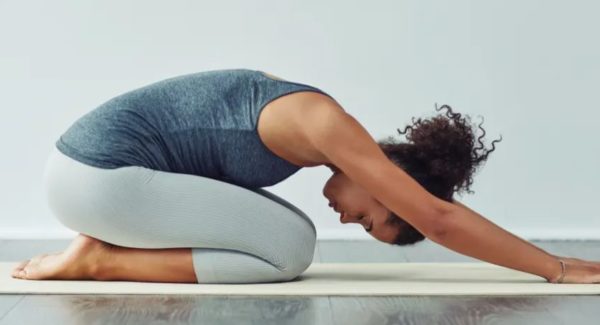Lifestyle
8 best stretching tips on getting more flexible

Being flexible isn’t just for yogis and gymnasts. It’s also not just about being able to do the splits or twist yourself into a pretzel. It is beneficial for your muscles and ligaments and it’s a great way to keep your body loose and pain-free.
Stretching can also help relieve muscle cramps and honestly, it just feels good to be flexible and in control of your body. Being flexible is also great for preventing injuries and it’ll prevent you from back pain too.
Basically, there are no negatives to being flexible, only benefits. So here are a few tips on how to become more flexible.
1. Warm-up
Way too many people underestimate the importance of warming up before doing their stretches. But stretching without a warm-up can do more harm than good. Your muscles need to be warm for them to stretch and become more flexible. You might be more flexible than you think, and warming up will show you the real extent of how flexible your body actually is.
2. Take it one day at a time
Becoming more flexible will take time and you can’t really rush it. Your body needs the time to get used to something that it wasn’t used to before. So stretch a little every day, just a few minutes per muscle group will do, but definitely don’t try to get into splits in a day or even a week. You might hurt yourself and it’ll only slow you down.
3. Stretch all over
Way too many people just pick one area of their body, for example, they want to be able to bend in half perfectly, or just do the splits. But all of your muscles are connected, in fact, everything in your body is interconnected so you should stretch all of your body and work on becoming more flexible in general.
4. Remember to breathe
Lots of people tend to hold their breath while they’re doing stretches, but that just causes them to tense up. In order to become flexible, you need to relax and breathing can actually help with that. Try to breathe in just before a stretch and breathe out as you’re trying to get deeper into a stretch. Repeat 3 to five times for every stretch.
5. You shouldn’t feel pain
The saying “no pain – no gain” really doesn’t apply when it comes to improving one’s flexibility. The goal is to maybe reach a stage for light discomfort and breathe through it for a few seconds and try to relax into it, but it should never be painful. Pain means you’re going too hard too fast and it can only lead to injury.
6. Give yourself time
We’re all different and it’ll take everyone a different amount of time to reach your goals. Some people are just naturally more flexible and others aren’t and that’s ok. There’s no need to rush. Your flexibility is largely dependent on genetics, and your friend might be able to do the splits in a month, while it can take you a year, but that’s ok.
7. Start simple
Find a few simple stretches that you like the most and try doing them every day. Don’t immediately go for something difficult. There are plenty of beginner yoga and beginner stretching classes online that are absolutely free. It’s really not rocket science.
8. Stretching is a lot more active than you think
Becoming flexible isn’t about sitting in weird stretch poses for hours, it’s about gentle movements that will encourage your body to relax and stretch. So instead of just trying different stretching poses, try moving and swaying in them, this is way better for stretching than being static.







